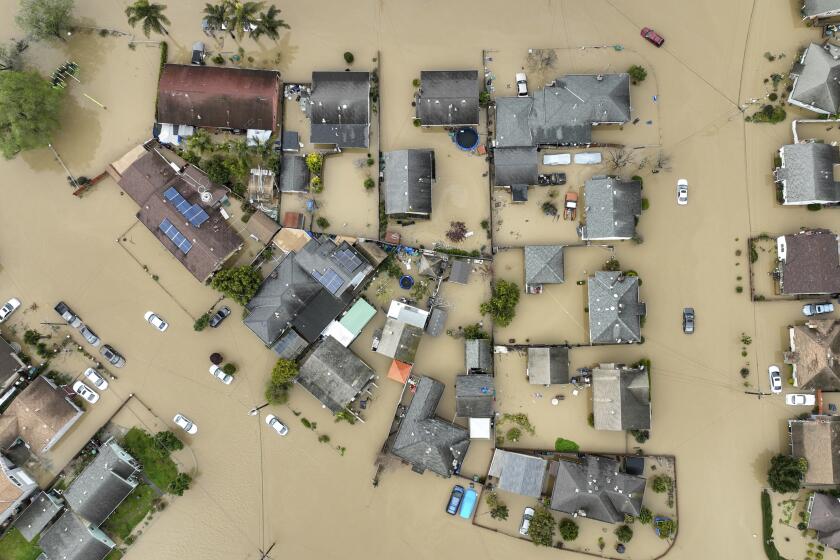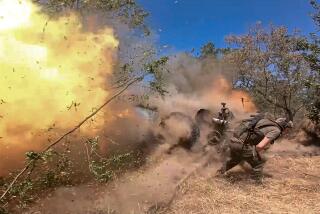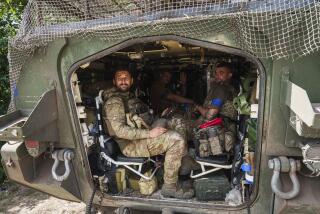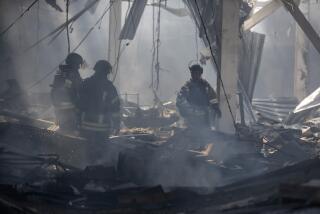Russian advance in Bakhmut could come with heavy losses, U.K. says
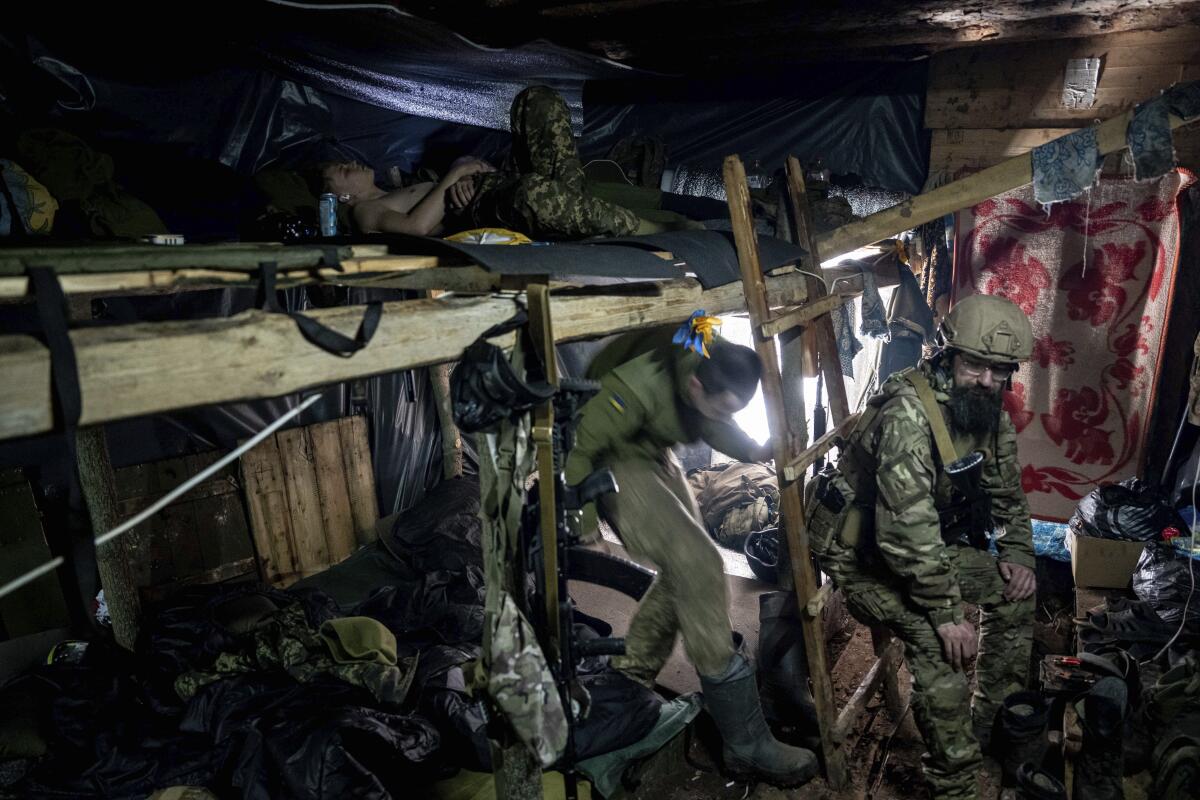
- Share via
KYIV, Ukraine — Russian forces have made progress in their campaign to capture the city of Bakhmut in eastern Ukraine, the focus of the war’s longest ground battle, but their assault will be difficult to sustain without more significant personnel losses, British military officials said Saturday.
The U.K. Defense Ministry said in its latest assessment that paramilitary units from the Kremlin-controlled Wagner Group have seized most of eastern Bakhmut, with a river flowing through the city now marking the front line of the fighting.
The mining city is in Donetsk province, one of four regions of Ukraine that Russian President Vladimir Putin illegally annexed last year.
Russia’s military opened the campaign to take control of Bakhmut in August, and both sides have experienced staggering casualties.
Ukrainian troops and supply lines remain vulnerable to “continued Russian attempts to outflank the defenders from the north and south” as the Wagner Group’s forces try to close in on them in a pincer movement, the U.K. ministry said.
However, the ministry added, it will be “highly challenging” for Wagner’s soldiers to push ahead because Ukraine has destroyed key bridges over the river, while Ukrainian sniper fire from fortified buildings farther west has made the thin strip of open ground in the city’s center “a killing zone.”
Flash flood warnings remain in effect for parts of Santa Cruz, Monterey, Tulare and Sonoma counties, according to the National Weather Service.
Russian military bloggers and other pro-Kremlin Telegram accounts claimed Friday that Russian forces had entered a metal processing plant in northwest Bakhmut. The Institute for the Study of War, a Washington-based think tank, also referenced geolocated video showing Russian forces within half a mile of the AZOM plant, a heavily built-up and fortified complex.
The institute reported in its Friday night assessment that Moscow’s apparent focus on capturing the plant, rather than opting for a “wider encirclement of western Bakhmut” by attempting to take nearby villages, was likely to bring a further wave of Russian casualties.
Ukraine’s ground forces Saturday signaled their intention to hold out in Bakhmut, announcing on Facebook that their top officer, Col. Oleksandr Syrskyi, was personally overseeing “the most important sectors of the front” to deny Moscow a long-awaited battlefield victory.
“Our military is standing. This is our fortress. And what they are doing now, we cannot even imagine how useful it will be for the country, for our army in the near future,” National Security and Defense Council Secretary Oleksiy Danilov said on Ukrainian state TV.
Quoting Syrskyi, he said the alleys and territory around Bakhmut were “littered with the corpses of Russians and ‘Wagnerians.’”
Meanwhile, repair work continued Saturday across Ukraine following a massive Russian missile and drone strike two days earlier that killed six people and left hundreds of thousands without heat or electricity.
Ukraine’s state grid operator said power supply issues persisted across four provinces after the barrage, in which 80 Russian missiles and a smaller number of exploding drones hit residential buildings and infrastructure across the country.
In a Facebook post, Ukrenergo said scheduled blackouts remain in place in Kharkiv and Zhytomyr, as well as parts of the Dnipropetrovsk and Mykolaiv regions. The company added that the situation in Zhytomyr was especially challenging, with some customers still without power.
The Ukrainian military reported that Russia launched 34 attacks from multiple rocket launchers Saturday on various parts of the country. They included southern Ukraine’s Kherson province, where three people “who simply went to a store to buy groceries” were killed, Ukrainian President Volodymyr Zelensky said.
Russian shelling between Friday morning and Saturday morning killed at least five people and wounded 19 more across Kherson and Donetsk provinces, Ukrainian authorities reported.
Donetsk has been the epicenter of the fighting in recent months, while Ukrainian-held parts of Kherson have seen daily shelling from Russian troops stationed across the Dnipro River.
On Saturday, Russian forces also launched 12 airstrikes and two missile strikes on the city of Zaporizhzhia, the capital of the southeastern Ukrainian province of the same name, according to Ukraine’s military. A strike by an S-300 missile hit a civilian infrastructure facility, but no casualties were reported.
Ukrainian defense chief Oleksii Reznikov welcomed his Norwegian counterpart to Kyiv on Saturday. Defense Minister Bjorn Arild Gram announced Norway’s decision to earmark $7.5 billion over the next five years for weapons and other aid for Ukraine.
According to a readout of the meeting published by Ukraine’s Defense Ministry, Gram said the arms Norway planned to send included missile launchers and ammunition for NASAMS antiaircraft systems.
Reznikov said that Ukrainian troops successfully operated some of the same weapons to shoot down the drones and missiles that Russia rained on Ukraine on Thursday.
“We know for sure that every 10 uses of the NASAMS system ... mean downing 10 of the aggressor’s missiles, saving 10 buildings and infrastructure facilities, as well as hundreds of human lives,” he said.
More to Read
Sign up for Essential California
The most important California stories and recommendations in your inbox every morning.
You may occasionally receive promotional content from the Los Angeles Times.
